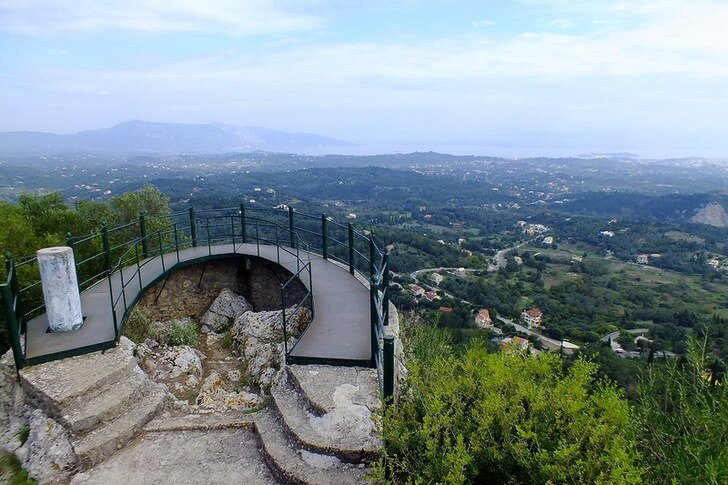Corfu stands apart from other Greek resorts. According to most tourists, the quality of service in the hotels of the island is an order of magnitude higher than in Halkidiki, Rhodes or Crete. And although you can’t find ancient ancient temples and theaters here, Corfu has a fairly large number of well-preserved monuments of Byzantine architecture, Orthodox monasteries and palaces.
Corfu has incredibly picturesque landscapes. From the observation platforms scattered throughout the island, an unforgettable view of the coast, fertile plains, coniferous groves, green hills and small villages opens up. The healing Mediterranean air of Corfu is able to strengthen health and energize, and the gentle sun will give you a golden even tan.
What to see on the island of Corfu?
The most interesting and beautiful places for walking. Photos and a short description.
- Old city of Kerkyra
- Aqualand Waterpark
- Paleo Frurio
- Neo Frurio
- Liston Street (Kerkyra)
- Spianada Square (Kerkyra)
- Achillion Palace
- Palace of Saints Michael and George
- Mouse island
- Vlaherna Monastery
- Monastery in Paleokastritsa
- Cathedral of St. Spyridon (Kerkyra)
- British Cemetery (Kerkyra)
- Fortress of Angelokastro
- Castle of Kassiopi
- Canal of Love in Sidari
- Paleokastritsa beach
- Agios Gordios beach
- Mount Pantokrator
- Viewpoint Throne of the Kaiser
Old city of Kerkyra
Kerkyra was founded by the Greeks in the 8th century BC. Over the long history of its existence, it has changed owners many times. The city was owned by the Roman and Byzantine empires, the Republic of Venice, the Ottoman Turks, the French and the British. At the beginning of the 19th century, Kerkyra was under the protectorate of the Russian Empire for seven years. Since 2007, the city center has been included in the UNESCO World Heritage List for its special architectural value.
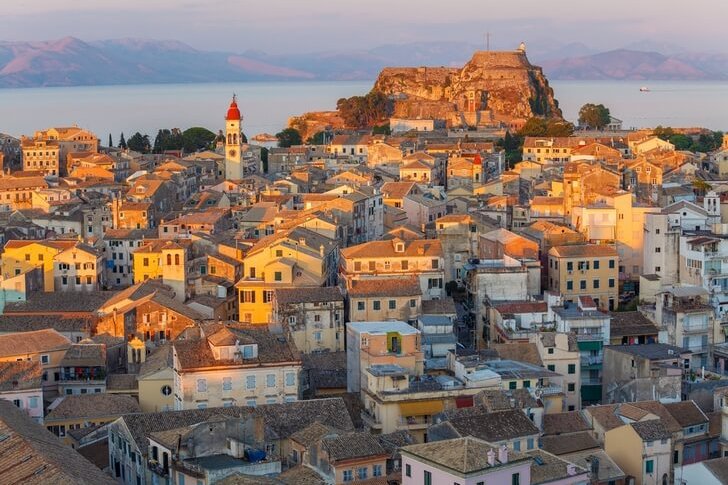
Aqualand Waterpark
An entertainment complex for the whole family with a huge number of water attractions. The water park has created conditions for visitors of all ages, so even the smallest children will not be bored. The infrastructure includes a range of services for people with disabilities. Aqualand is one of the largest water parks in Greece. It is located on an area of 75 thousand m².

Paleo Frurio
A Venetian fort built in the 15th-16th centuries on the foundations of a Byzantine fortress from the 8th century. At the foot of the hill, on which the fortification rises, the church of St. George was built, decorated with Doric columns. The temple was built already under the British in the 19th century. Many buildings of the fortress, such as the palace of the Venetian governor and some churches, have not survived to this day.
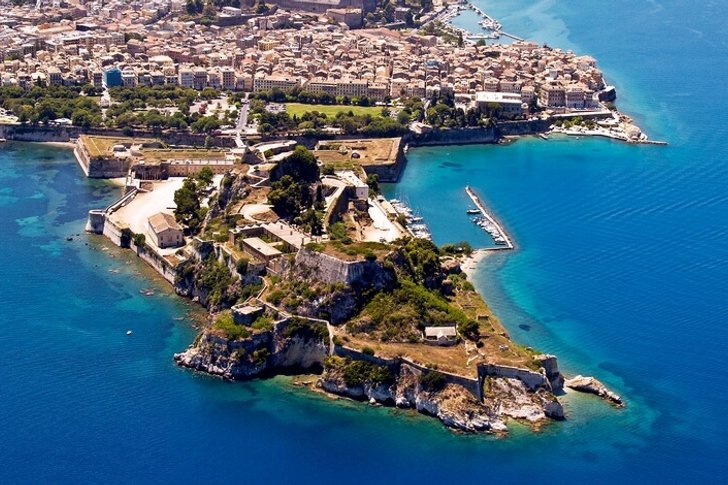
Neo Frurio
Another Venetian fortress, built in the 16th century to strengthen the defense line of Corfu. Subsequently, the construction was completed by the British and French. Neo Frurio is located at the top of St. Mark's Hill. Today, part of the premises is used as offices of the seaport, the other part is open to the public. On the territory of the fortress there is a small gallery, where exhibitions are sometimes held.
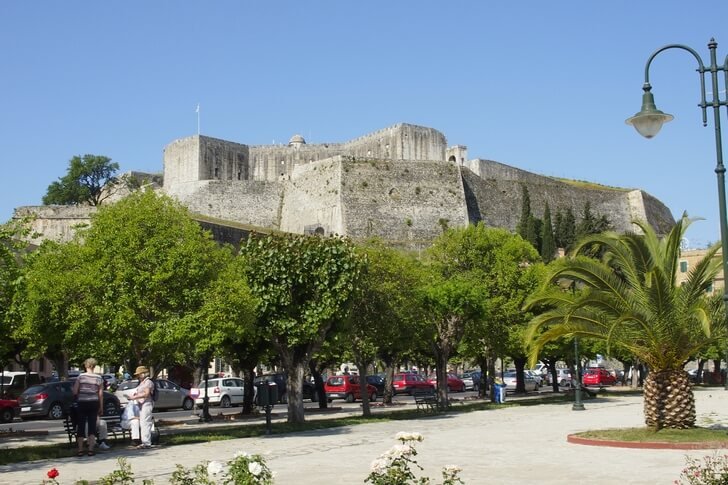
Liston Street (Kerkyra)
The street was founded in 1807-14. The architects I. Parmesan and M. de Lesseps worked on the project. It was created in the image of the Parisian "promenades" characteristic of the French capital. Initially, access to the alley was allowed only to representatives of aristocratic families. A large number of souvenir shops, jewelry stores and cafes have concentrated on Liston Street.
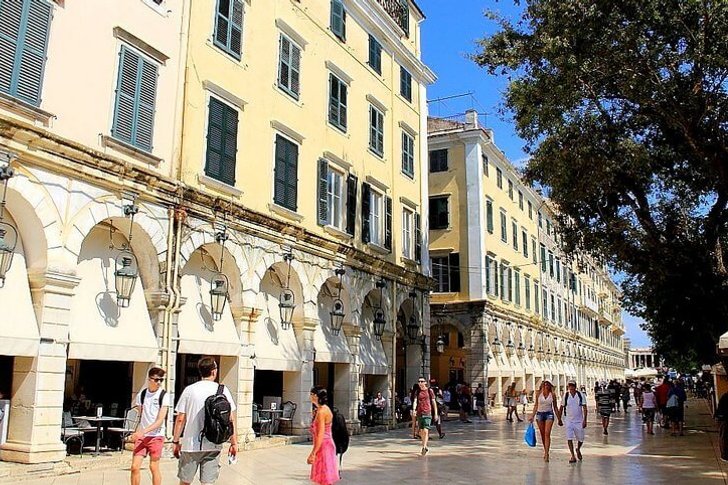
Spianada Square (Kerkyra)
One of the central squares of Corfu, surrounded by picturesque vegetation and historical buildings. It is located near the Paleo Frurio fortress and the main tourist promenade st. Liston. Spianada Square is a very comfortable and cozy place for leisurely walks, which is constantly used by tourists and locals. Around the square are taverns where you can taste hearty Greek cuisine.
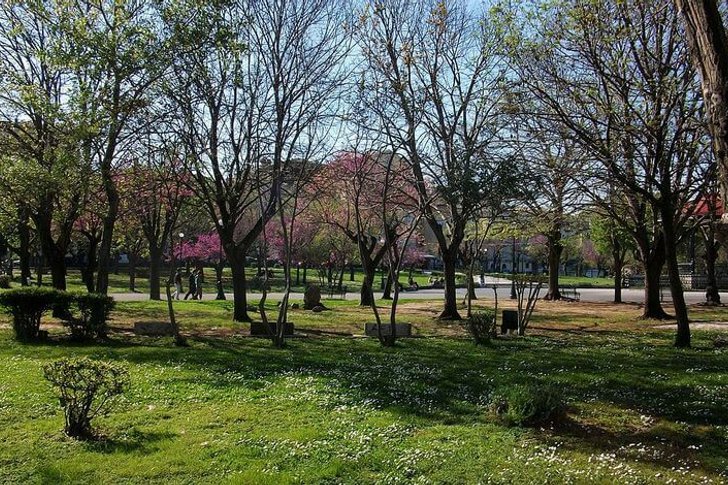
Achillion Palace
The palace complex was built in 1890 at the behest of the Austrian Empress Amalia Elisabeth of Bavaria. Corfu was Elizabeth's favorite vacation spot; she often fled here from the hated and pompous Vienna. After the death of the Empress, the palace became the residence of Kaiser Wilhelm II. By his decree, the interiors were updated. Nowadays, the palace houses a museum.
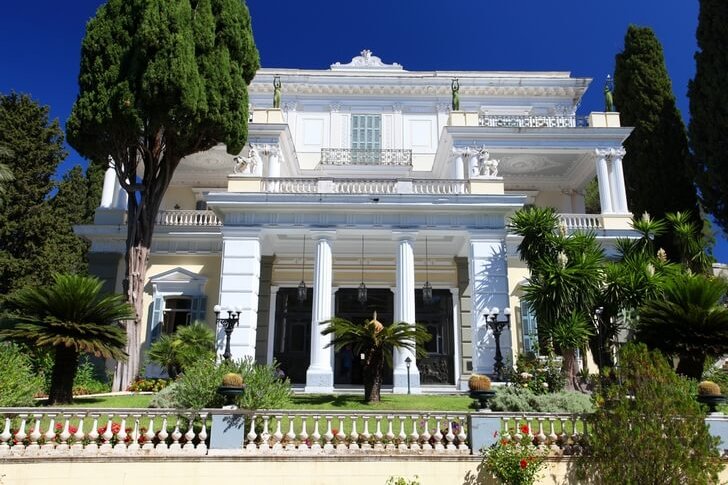
Palace of Saints Michael and George
The palace was built in 1819-24. for the British Governor of the Ionian Islands. The local senate and the headquarters of the knightly order of St. George were located here. The complex is built in a classical style. Its façade is decorated with a long row of Ionic columns. Today, the palace houses the Museum of Asian Art, which houses an extensive collection of the diplomat G. Manos, collected by him during his long travels in Asia.
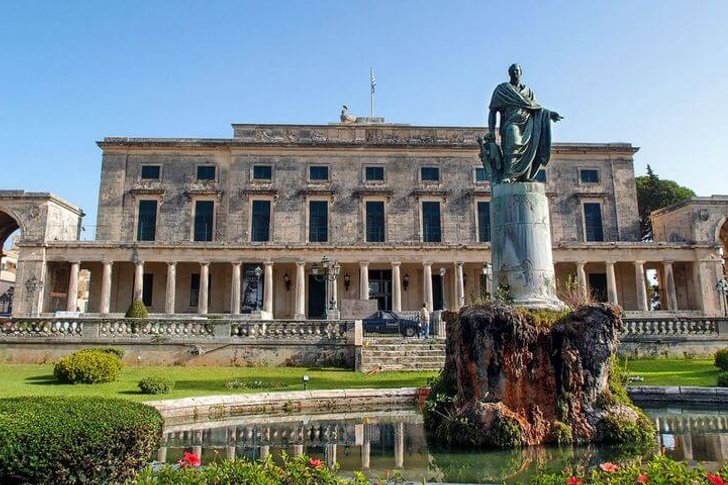
mouse island
A small island with the official name "Pontikonisi", located south of Corfu. There is a legend that this is the ship of Odysseus, which was turned into stone by the angry god Poseidon. The place was nicknamed "Mouse Island" due to its tiny size. The island is easy to get around on foot in a few minutes. Boats run from Corfu to Pontikonisi. Some tourists prefer to swim to the place.
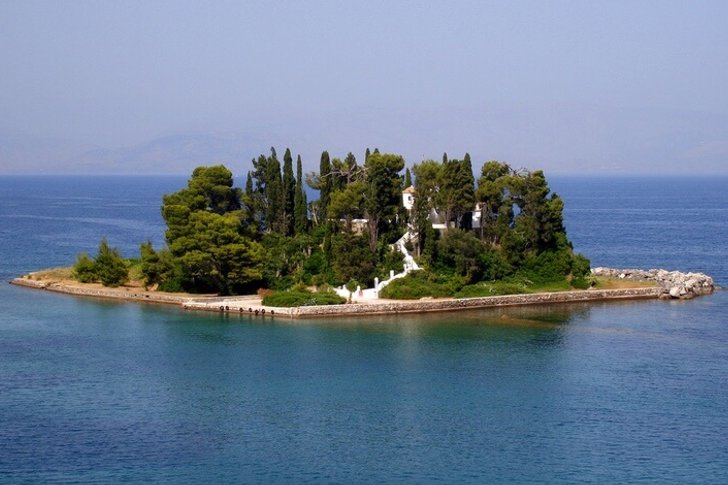
Vlaherna Monastery
Orthodox monastery of the 18th-19th centuries, founded by the pious Tsilibaris family. Throughout the 20th century, the monastery was female, after a short period of decline in 2005, by decree of the President of Greece, it was revived as male. The monastery is located on a small island next to Mouse Island. It is connected to the mainland by a narrow isthmus. The revered icon of the Blachernae Mother of God is kept in the monastery.
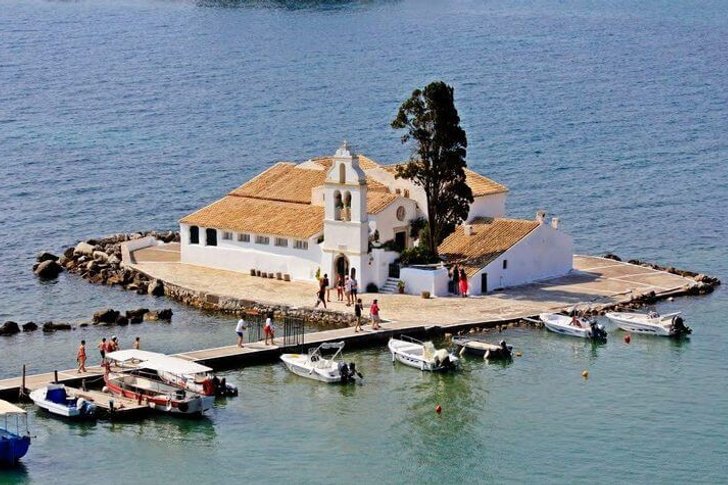
Monastery in Paleokastritsa
Men's monastery of the XVII century, located in the picturesque western part of Corfu. It is located on the top of a cape, surrounded on three sides by the waters of the Ionian Sea. The monastery was erected on the site of an old destroyed monastery in 1225. The icon of Skopietissa (Paleokastritsa) and the icon of the Assumption of the Mother of God are kept within its walls. Not far from the monastery complex there is a winery, an icon museum and an olive oil factory.
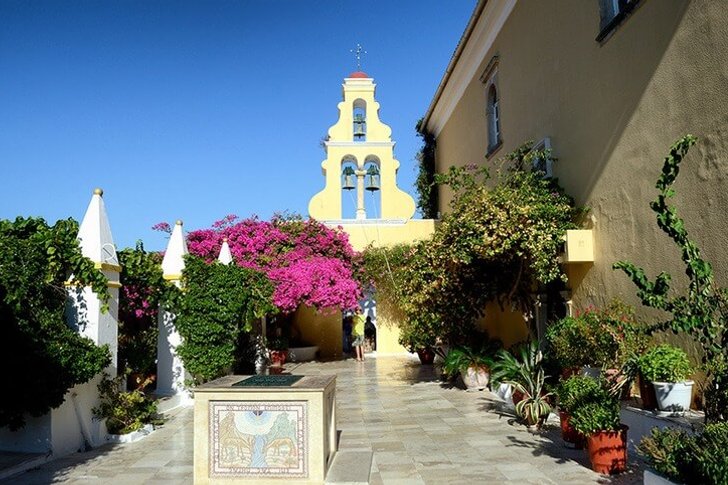
Cathedral of St. Spyridon (Kerkyra)
The temple is located among the historical quarters of Corfu, right in the heart of the Old City. Quite a lot of funds for the development of the church were donated by the Russian Empress Catherine II. The temple has always been considered one of the most luxurious in the Ionian Islands. Its interior is richly decorated with frescoes from the 17th-18th centuries. in Italian style. The relics of St. Spyridon, the patron saint of Corfu, are kept in the cathedral.
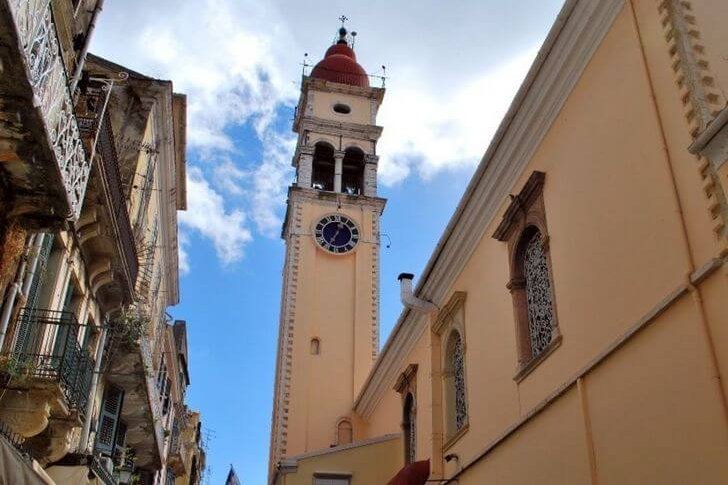
British Cemetery (Kerkyra)
Corfu was under the protectorate of Great Britain in the period 1815-64. Since the British belong to the Anglican Church, they needed their own necropolis, which was organized almost immediately after the island came under the control of the British. The oldest graves date back to 1817. Soldiers who took part in world wars, as well as representatives of the British administration, are buried in the British Cemetery.
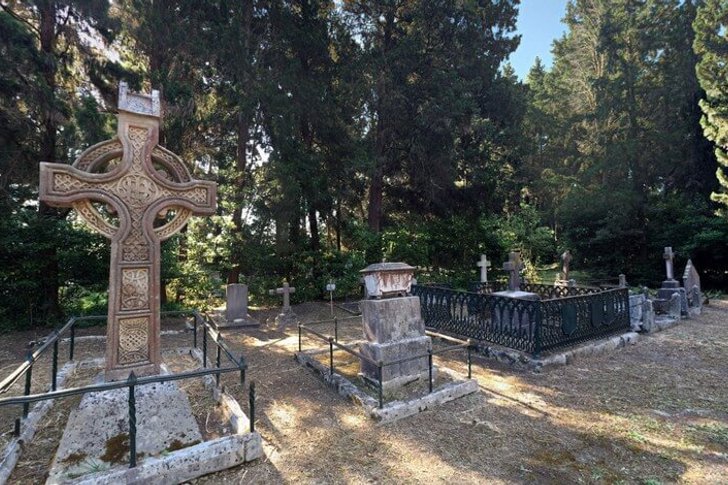
Fortress of Angelokastro
The building is an important monument of the Byzantine era in Corfu. It was erected at the beginning of the 13th century. Since the 14th century, the Venetian Republic has owned the fortress. During the siege by the troops of the Ottoman Empire, Angelokastro withstood the onslaught, despite its small garrison. The fortress has survived to this day in a fairly good condition. Since 2009, the fortification has been open to the public.
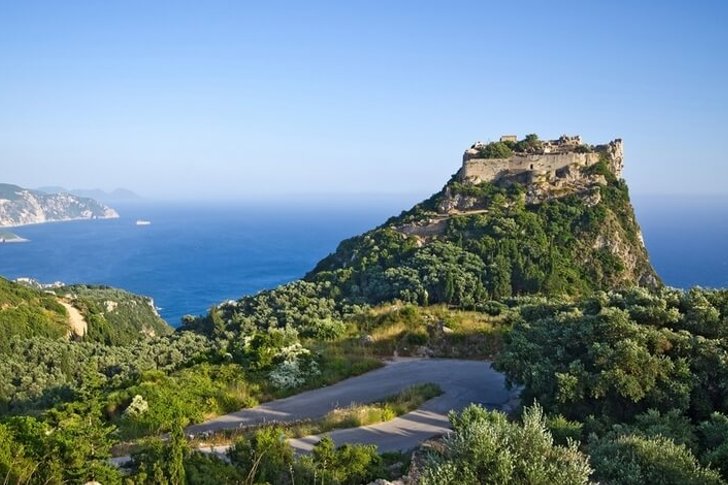
Castle of Kassiopi
Kassiopi is a small town in Corfu with about 1200 inhabitants. It is believed that settlements have existed on this site since the time of King Pyrrhus (3rd century BC). Kassiopi Castle was founded on the ruins of a Roman fortification during the Byzantine era. Later, the Venetians worked hard to strengthen the fortress. The building is located on a cape. It is well visible from the harbour.
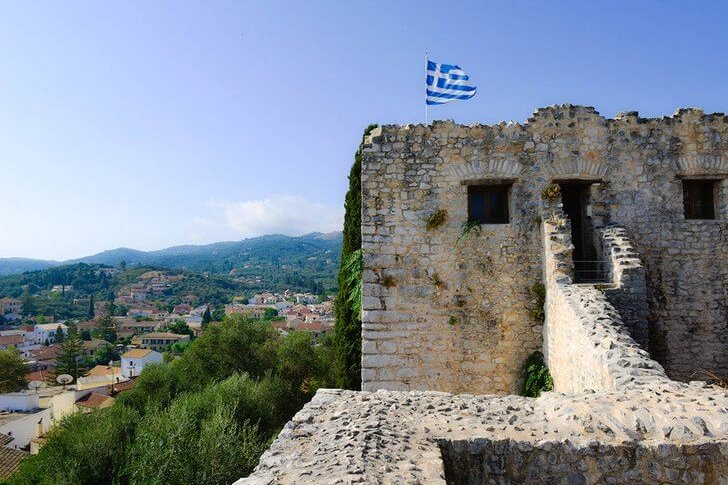
"Canal of Love" in Sidari
An incredibly picturesque place located in the northwestern part of the island, not far from the beach of Sidari. The "Channel of Love" consists of several narrow strips of water, sandwiched between rocks and ending in small bays. This Greek “fjord” has incredibly warm water and a cozy sandy beach. The place is very popular among tourists due to its beauty and expressiveness.

Paleokastritsa beach
Sand and pebble beach, located 23.5 km. from the city of Corfu. It differs in that even on the hottest day, the water here remains relatively cold. The beach is surrounded by picturesque hills. In its surroundings there are beautiful coves and bays that can be explored by renting a small boat. Paleokastritsa is a popular diving site for both beginners and experienced divers.
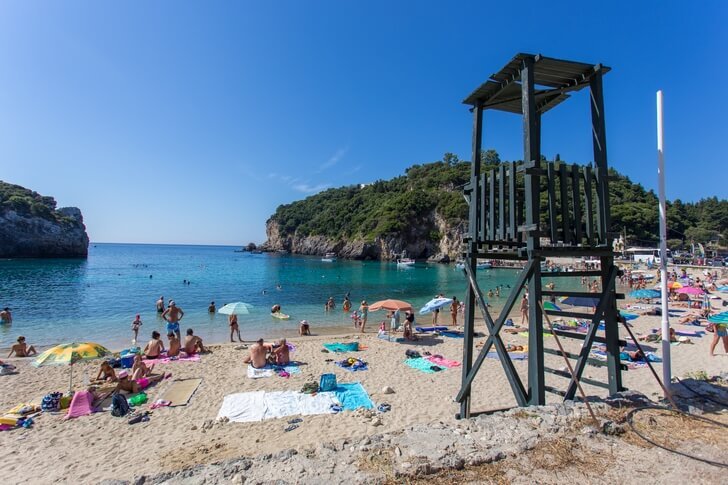
Agios Gordios beach
The beach is located in the western part of Corfu. It is surrounded by hills, pine groves and citrus orchards. Most of the beach is covered with pebbles, but there is also a sandy area. The total length of Agios Gordios is about 1.5 km. A wide range of entertainment is provided for tourists. Here you can rent water equipment, go bungee jumping, go boating or paragliding.
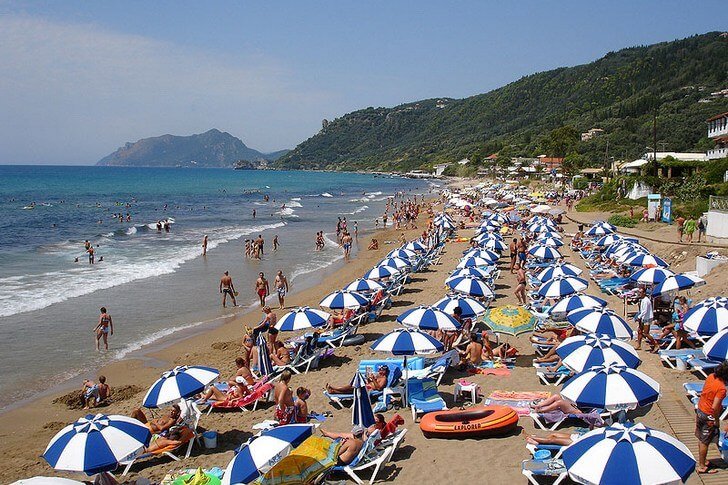
Mount Pantokrator
The highest mountain on the island (906 meters above sea level). At its top is a monastery and modern telecommunications towers. From the observation deck of Pantokrator, on a clear day, you can even see the distant shores of the Apennine Peninsula. For tourists, there are several hiking trails along which you can climb to the top. The ascent takes approximately two hours.
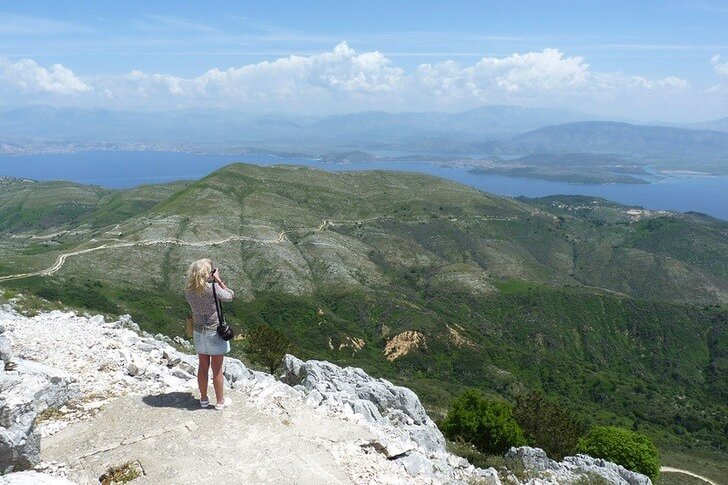
Viewpoint Throne of the Kaiser
Equipped playground, located on the rocks near the village of Pelekas. The German Kaiser Wilhelm II liked to spend minutes of rest here (hence the name of the place). The site offers a circular panorama of the surroundings - you can see Mount Pantokrator, the coast of Albania, the western and eastern coastlines of Corfu, as well as all the beauties of the green Ropa valley.
